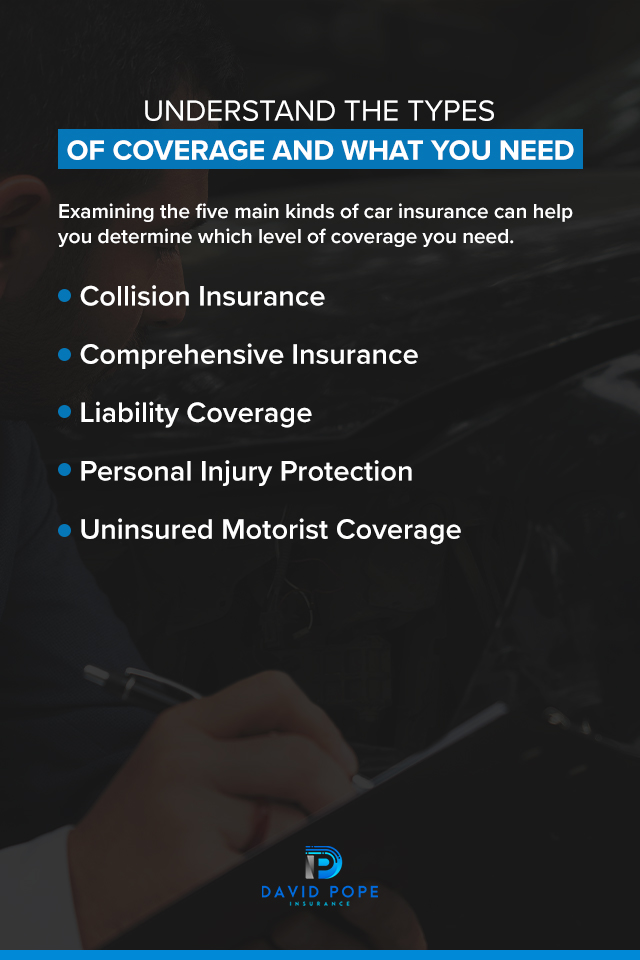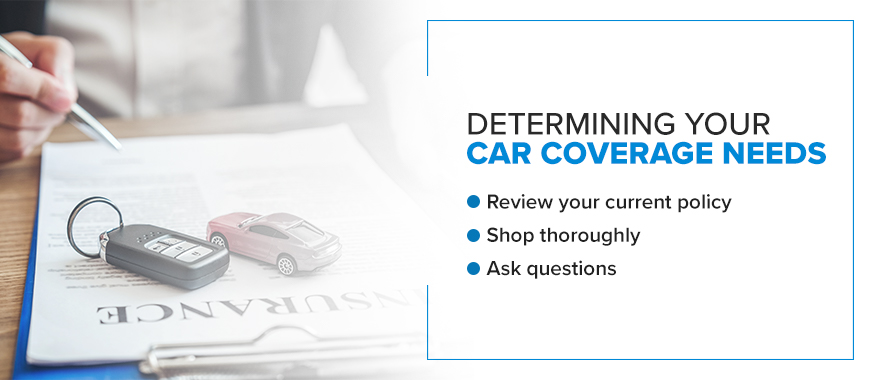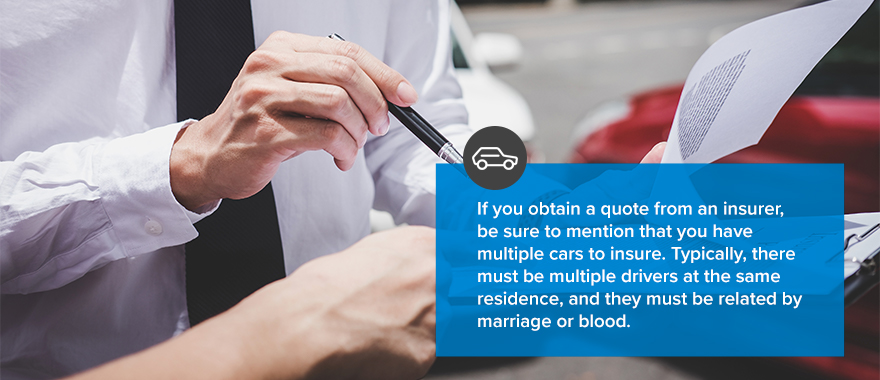If you own a car, you know that auto insurance is necessary. Driving a car with adequate coverage can protect you from fines and give much-needed financial assistance in case of an accident. Registration of motor vehicles in the United States is at an all-time high, meaning that more people than ever require auto insurance. Yet drivers also want to save money on car insurance and prefer not to pay for more than needed for coverage.
With a thorough understanding of the factors that could drive up your car insurance costs, you can find the best deal on the car insurance you need. Here are 11 of the best car insurance savings tips to help you reduce your insurance expenses.

Car insurance rates depend on various factors, including your location, the car you drive, your credit score and your driving history. The American Automobile Association found that in 2020, the average cost of insuring a car was $1,202 per year. While many car owners want to spend the bare minimum on their insurance, the fact is that they still need some coverage, whether it’s basic liability or comprehensive insurance.
Examining the five main kinds of car insurance can help you determine which level of coverage you need.
If your car is in an accident with another vehicle or object, collision insurance will help cover the damages. When considering collision insurance, remember to factor in the likely cost of repairing your specific vehicle. Your coverage needs will depend on the kind of car you drive. For example, the more expensive or rare your car’s parts are, the higher this cost is likely to be. You will be responsible for covering any expenses that exceed your collision coverage.
Your car may suffer other kinds of damage not related to an accident, like theft, vandalism or storm damage. Comprehensive insurance will help you repair your vehicle or replace it with one of equal or lesser value.
As with collision insurance, comprehensive coverage only pays for what your car is worth on the market, not for what you paid when you purchased it. Cars depreciate as soon as you drive them off the lot. After a certain amount of depreciation, your vehicle may be worth less than what you pay in insurance premiums to have it repaired. In this case, it could be cheaper to cancel your coverage and start saving for a new car.
If you are at fault in an accident, liability coverage will cover the damages. However, liability insurance will not cover the injuries sustained by others in your vehicle or damages to another car. There are other kinds of liability insurance available that can pay for these costs:
Personal Injury Protection (PIP) insurance provides coverage for the medical bills you and your passengers acquire due to a crash. Depending on your plan, PIP might even cover lost income if you cannot work due to your wreck.
Some states require that all drivers and motorists carry a minimum level of PIP protection. If you have adequate health and disability insurance, this minimum amount might be sufficient to cover you in case of an accident-related injury. However, medical expenses often exceed property damage expenses, so many drivers upgrade their PIP insurance.
Most states require uninsured or underinsured motorist coverage. This insurance takes care of any medical expenses you incur after an accident with an uninsured vehicle where the other driver is at fault. Uninsured motorist coverage can make a significant difference if you are involved in a major accident, as you cannot control what insurance coverage the other driver has. Generally, this coverage equals the amount you have for Bodily Injury Liability insurance.

Having all of this coverage might sound like the safest option, yet you could be paying for more than you will use. A recent study found that Americans overspend on auto insurance by nearly $37 billion a year.
However, it is vital to remember that any expenses that your insurance cannot cover will be your responsibility to pay. So how do you balance having adequate coverage with lowering your costs? Finding the policy that’s best for you might require some investigation.
It might take a significant amount of your time, but comparing policies can save you money on car insurance — up to thousands of dollars a year.
One of the fastest ways to lower your car insurance cost is to increase your deductible. Since a low deductible means that you pay very little before insurance kicks in, your insurer usually requires a higher monthly payment. However, your monthly payments will decrease, sometimes significantly, if you increase your deductible.
If your deductible is currently $250, you can consider raising it to $500, $1,000 or even $2,000, depending on what you can afford. Ask your agent how this change would affect your premium. Increasing your deductible by a significant amount could decrease your payments by several percentage points.
Increasing your deductible can benefit you in several situations. First, it can help prevent you from overpaying for coverage you won’t use often. In addition, it may be preferable to pay for minor repairs out-of-pocket, as this can keep you from having to file a claim and increase your premium. Remember to save enough in your emergency fund to cover your deductible in case of a major collision.
Another great way to save on your premium is to ask your agent about any discounts you may qualify to receive. Each insurance company offers different discounts, depending on driver safety and status, policy and usage. You may be able to take advantage of specific discounts if you:
Remember that just because you qualify for several discounts with one insurer doesn’t mean their plan is the lowest price out there, so compare multiple policies after you factor in your discounted savings.
It’s often wise to shop around for lower rates every year or two, especially if you notice that your premium has changed. After comparing quotes from multiple insurance companies, you may discover that your current insurer is not offering you the best price for your situation. If they are unable to match a lower rate, it could be in your best interest to switch car insurance providers altogether.
However, cheaper doesn’t necessarily mean better. You should also consider the risks you want to be insured, as well as the insurance company’s creditworthiness. If a company is unable to pay you for coverage when you need it most, giving you lower rates does you little good in the long run. Check a potential insurer’s financial strength on a site that compares insurance companies.
When looking for how to save on car insurance, improving your credit score might not be the first thing that comes to mind. Some insurance companies consider your credit rating to determine how much to charge for auto coverage. This is because many insurers believe that a financially responsible person is also a responsible driver.
Improving your credit to decrease your insurance payments is a long-term solution, yet it can benefit several areas of your financial life. With a better credit score, you may also qualify for savings on other kinds of insurance, lower credit card interest and more housing options. To improve your credit, you might make the following changes:
If you don’t drive frequently, a usage-based policy could be an excellent way to save money on car insurance. Insurance companies base rates for these policies on how often and, sometimes, how safely you drive. Usage-based policies, also known as pay-as-you-go insurance, operate using data from a small device installed in your car. This device tracks your mileage and driving habits, which can possibly earn you a discount.
The fewer miles you drive, the better your discount could be. In some cases, the installed device also tracks how often you brake hard or speed. A usage-based program can be beneficial if you drive fewer than 10,000 miles a year. Typically, you will pay a base rate and an additional rate for each mile you drive.

Drivers with multiple cars to insure could receive a discount for including both vehicles in the same plan. Many insurance companies are willing to cut you a deal if it means you bring them more business.
If you obtain a quote from an insurer, be sure to mention that you have multiple cars to insure. Typically, there must be multiple drivers at the same residence, and they must be related by marriage or blood. Some insurers will also discount non-related roommates, although they must jointly own or drive the vehicles. That means you can get coverage for your spouse’s car and your teenager’s car for a potentially lower cost than if you insured them separately.
In addition, some insurance companies can offer you a discount if you bundle other types of insurance with auto, like homeowners. Check to see if this bundle is available and applicable in your situation.
Another discount that some companies will provide is for car owners who complete a defensive driving course. Your willingness to enroll in and graduate from a driving course demonstrates that you are serious about being a safe driver. Insurance companies want to reward drivers who are safer and more responsible than typical drivers, so many offer this discount.
Defensive driving courses aim to help car owners reduce their driving errors and make safer decisions during unforeseen situations. Maintaining concentration on driving, eliminating distractions and lowering mistakes can all improve your driving record. Ask your agent if this kind of discount is available. It can be a simple way to save money while also investing in your safety and the safety of others around you.
You could receive another discount by installing anti-theft devices in your car. These devices include flashers and beepers that alert anyone approaching your vehicle that an alarm will sound if they get too close. Insurance companies realize that these devices can prevent someone from stealing your vehicle, which motivates them to incentivize having the mechanism installed.
With increased protection for your car, you have a lower chance of filing a claim for a stolen or vandalized car, saving the insurance company money. If your car’s make and model is often targeted for auto theft, an anti-theft device could save you money on car insurance long-term. Before investing in one of these mechanisms, calculate whether the discount your provider offers will offset the cost of purchasing the device.
The make and model of the car that you drive could significantly impact your rates, especially if you have collision or comprehensive insurance. Some vehicles are cheaper to insure because their parts are simply less expensive to replace. Others, like minivans and small SUVs, are associated with safe driving habits, whereas sports cars have the most at-fault accidents.
A flashy convertible isn’t just made for speed — it also has a smaller frame and lighter mass, making it less effective at protecting occupants in a crash. A low-cost commuter car often comes with increased safety features, another attraction for insurers. Some companies also offer lowered rates for insuring a hybrid or alternative fuel vehicle. In general, any vehicle that is less likely to get in an accident or less expensive to repair from major damage will likely score you increased savings.
One of the best tips for saving on car insurance is to be a safe and cautious driver. Safe driving is the best defense against vehicle accidents. When you pay attention to the road, you protect the health of yourself and your passengers and can prevent the need for costly repairs. The more mindful you are of your driving environment, the easier you will avoid tickets, distractions and dangers on the road.
Safe driving can also qualify you for safe-driver discounts through some insurers. Insurance companies that offer these discounts check for low driving speeds, consistent seatbelt-wearing and less aggressive braking. Avoiding risky driving behavior can lower your monthly payments, all else being equal.
In addition, developing safe driving habits can prevent certain traffic violations and accidents that might increase your rates. However, a minor ticket might not affect your rates at all, so check on your insurer’s policy.

Car owners have a lot to consider when trying to save on insurance. Having a lot of car insurance can ensure that you are covered in case of an accident, yet it can also cost more than is necessary.
At David Pope Insurance, we understand you want to maximize your coverage while keeping your costs low. We are committed to finding our clients the lowest insurance rates on the market while providing high-quality insurance with flexible quotes tailored to suit your needs. Contact us today for a quote.